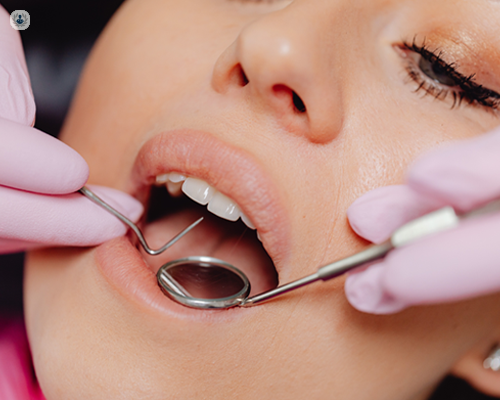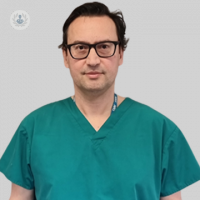How and when are wisdom teeth removed?
Written in association with:Wisdom teeth and wisdom teeth extraction are the topics up for discussion today in one of our latest medical articles here below. Read on as esteemed consultant robotic, maxillofacial, and head and neck surgeon, Mr Konstantinos Karavidas explains all with regards to wisdom teeth and their removal.

What are wisdom teeth?
Wisdom teeth are the last set of molars to emerge in the back corners of the mouth.
When do wisdom teeth normally appear?
Typically, they appear in late adolescence or early adulthood, usually between the ages of 17 and 25.
When and why do wisdom teeth cause problems?
While wisdom teeth can be valuable assets when healthy and properly aligned, they often cause problems when they become impacted or do not have enough room to emerge fully.
What are the associated complications?
One of the most common issues associated with wisdom teeth is impaction, where the teeth are unable to fully erupt through the gums due to lack of space or obstruction by other teeth. Impacted wisdom teeth can cause pain, swelling, and infection in the surrounding gum tissue, leading to a range of symptoms such as difficulty opening the mouth, jaw stiffness, and unpleasant taste or odour.
In addition to impaction, wisdom teeth may also grow in at an angle, pushing against adjacent teeth and causing tooth crowding or misalignment. This can lead to bite problems, tooth decay, and difficulty maintaining proper oral hygiene, increasing the risk of cavities, gum disease, and other dental issues.
When should they be taken out?
Due to these potential complications, many dentists and oral surgeons recommend the removal of wisdom teeth before they cause problems. This preventive measure, known as prophylactic extraction, is often recommended during the late teenage years or early twenties, before the roots of the wisdom teeth are fully developed and the extraction process becomes more complicated.
How are wisdom teeth removed?
Wisdom tooth extraction is a routine dental procedure performed under local anaesthesia, intravenous sedation, or general anaesthesia, depending on the complexity of the case and the patient's preferences. During the procedure, the dentist or oral surgeon will make an incision in the gum tissue, remove any bone covering the tooth, and carefully extract the wisdom tooth. In some cases, the tooth may need to be divided into smaller pieces for easier removal.
After the extraction, patients may experience some swelling, discomfort, and bleeding, which can typically be managed with over-the-counter pain medications and cold compresses.
To book an appointment with Mr Konstantinos Karavidas today, visit his Top Doctors profile.


